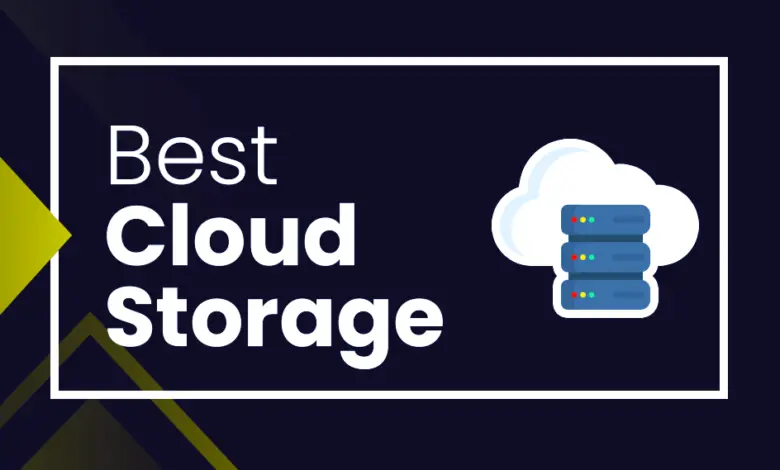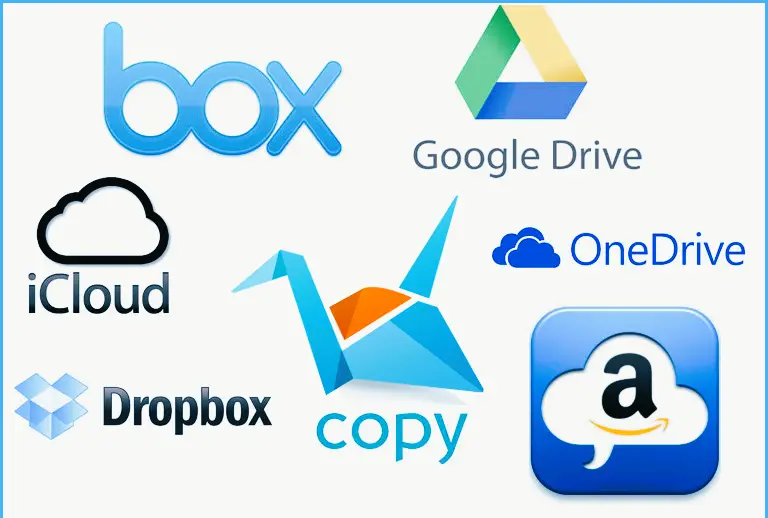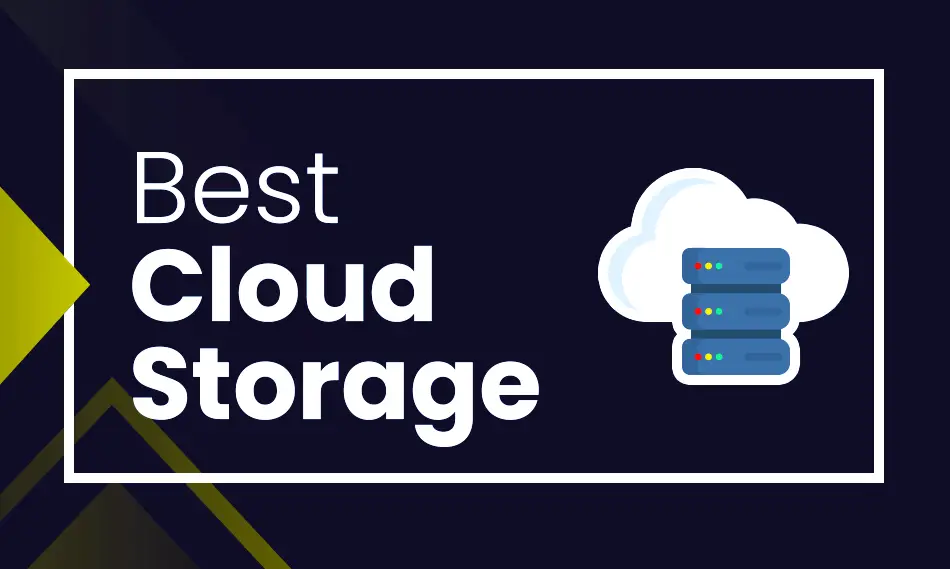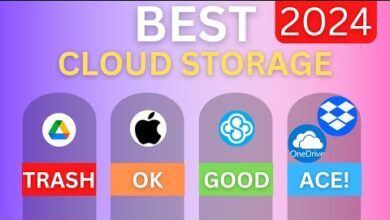
Explore the top cloud storage services for 2023 in our comprehensive guide. Google Drive, Dropbox, OneDrive, Amazon Drive, and iCloud are compared for your convenience.
In the ever-evolving landscape of cloud computing and data management, finding the right cloud storage and file-sharing service is paramount. We understand that you’re seeking the best options available, and we’re here to guide you through the top choices for 2023. This comprehensive guide will provide you with all the details you need to make an informed decision for your cloud storage and file-sharing needs.

Top 10 cloud storage services of 2023
Cloud storage and file sharing have become integral components of both personal and professional digital lives. With a multitude of options available, selecting the right service can be a daunting task. However, fret not, as we’ve meticulously researched and evaluated the top contenders in the industry to simplify your decision-making process.
Google Drive
Key Features:
- Storage Capacity: 15 GB (expandable with paid plans)
- File Types Supported: Almost all common file formats
- Integration: Seamless integration with Google Workspace
- Collaboration: Real-time collaboration on documents, spreadsheets, and presentations
- Security: Advanced security features, including two-factor authentication
Google Drive, an offering from the tech giant Google, is a powerhouse when it comes to cloud storage and file sharing. With a generous 15 GB of free storage and the ability to upgrade, it’s an excellent choice for individuals and businesses alike. Its integration with Google Workspace enables efficient collaboration among teams.
Dropbox
Key Features:
- Storage Capacity: 2 GB (expandable with referrals and paid plans)
- File Types Supported: Almost all common file formats
- Integration: Compatible with numerous third-party apps
- Collaboration: Seamless sharing and editing of files
- Security: Two-factor authentication and end-to-end encryption
Dropbox is synonymous with cloud file storage. While the free tier offers a modest 2 GB of space, it’s easy to expand by referring friends or opting for a paid plan. Dropbox’s versatility extends to integration with various third-party applications, making it a favorite among professionals.
Microsoft OneDrive
Key Features:
- Storage Capacity: 5 GB (expandable with paid plans)
- File Types Supported: Full integration with Microsoft Office formats
- Integration: Seamless integration with Microsoft 365
- Collaboration: Real-time collaboration on Office documents
- Security: Robust security protocols, including ransomware protection
For those entrenched in the Microsoft ecosystem, OneDrive is an excellent choice. It seamlessly integrates with Microsoft 365, offering 5 GB of free storage, which can be augmented with a subscription. It stands out for its real-time collaboration features on Office documents.
Amazon Drive
Key Features:
- Storage Capacity: 5 GB (expandable with Prime membership)
- File Types Supported: Wide range of file formats
- Integration: Built-in integration with Amazon Photos
- Collaboration: Limited collaboration features
- Security: Encryption and two-factor authentication
Amazon Drive is an attractive option, especially if you’re an Amazon Prime member, as it offers 5 GB of free storage with the option to purchase more. While its collaboration features are somewhat limited compared to others, it excels in media storage and retrieval, thanks to its integration with Amazon Photos.
Apple iCloud
Key Features:
- Storage Capacity: 5 GB (upgradeable with paid plans)
- File Types Supported: Seamlessly integrates with Apple file formats
- Integration: Full integration with the Apple ecosystem
- Collaboration: Collaboration on Apple’s suite of productivity apps
- Security: Robust security measures, including two-factor authentication
Apple users will find iCloud to be the perfect companion for their storage needs. While the free tier offers 5 GB of storage, it integrates flawlessly with Apple’s ecosystem, making it a top choice for Mac, iPhone, and iPad users. Collaboration on Apple’s suite of productivity apps is a breeze.
Conclusion
In conclusion, the cloud storage and file-sharing landscape for 2023 offers a range of excellent options to suit your specific needs. Whether you prioritize storage capacity, integration with other software, or collaboration features, there’s a solution tailored for you.

FAQs for Top Cloud Storage Services for 2023
1. What is cloud storage?
- Cloud storage is a service that allows you to store and access your data, such as documents, photos, and videos, on remote servers maintained by a cloud provider. This data can be accessed from anywhere with an internet connection.
2. Why should I use cloud storage?
- Cloud storage offers convenience, accessibility, and data backup. It allows you to free up space on your local devices, access files from anywhere and ensures your data is safe even if your device is lost or damaged.
3. How much does cloud storage cost?
- The cost of cloud storage varies depending on the provider and the amount of storage you need. Many providers offer free plans with limited storage and paid plans with more storage and additional features.
4. Is my data safe in the cloud?
- Cloud providers implement security measures like encryption and authentication to protect your data. However, it’s essential to use strong passwords and enable two-factor authentication for added security.
5. Which cloud storage service is the best?
- The best cloud storage service depends on your specific needs. Popular options include Google Drive, Dropbox, Microsoft OneDrive, Amazon Drive, and Apple iCloud. Each has its own strengths and features.
6. How do I share files with others using cloud storage?
- Most cloud storage services allow you to share files or folders by generating shareable links or inviting others to collaborate. You can control access levels and permissions for added security.
7. Can I access my cloud storage offline?
- Some cloud storage services offer offline access by allowing you to download files for offline use. However, this feature may vary depending on the provider and your device.
8. What happens if I exceed my storage limit?
- If you exceed your storage limit, you may need to upgrade to a paid plan or delete some files to free up space. Failure to do so may result in loss of access to your data.
9. How can I back up my data to the cloud?
- To back up your data to the cloud, you can simply upload files and folders to your chosen cloud storage service. Some services also offer automatic backup options for specific types of data.
10. Is cloud storage the same as cloud computing?
- No, cloud storage and cloud computing are not the same. Cloud storage focuses on storing and managing data, while cloud computing involves running applications and services on remote servers in addition to data storage.




